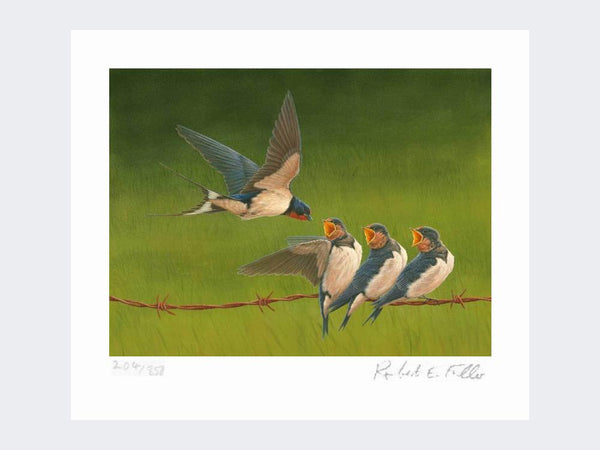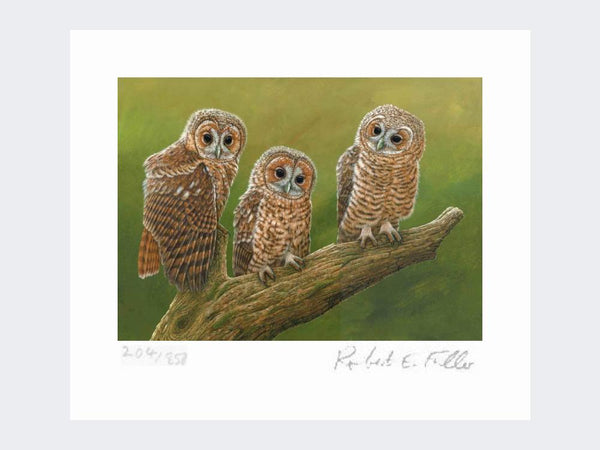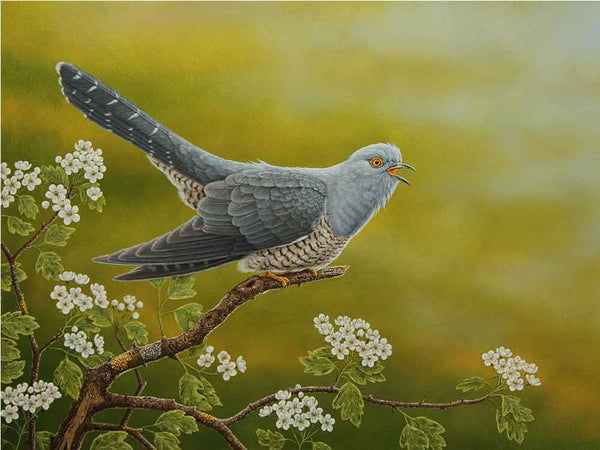Common buzzards continue to care for their chicks for weeks after the youngsters have learned to fly. But when it's time for the juveniles to leave home these ferocious parents let them know! Dates filmed: June 2021 - January 2022
Secret lives of a common buzzard family
I’ve been following these common buzzard chicks since they were about two weeks old, watching them grow from scrawny chick to quarrelsome birds. The word "buzzard" describes different species in different parts of the world. In North America it’s used colloquially to mean turkey vulture, but in Europe it refers to the genus Buteo, closely related to the red-tailed hawk.
First fledge
In mid-June the chicks are 50 days old, and one has fledged the nest. I have a feeding station about 50 meters away where I leave carrion for them. Once they learn to hunt these young common buzzards will consume a varied diet, from worms to rabbits. With growing chicks to care for, the adults make regular visits to grab a snack for themselves at my feeding station and when the young fledgling follows its mother to the station, she immediately begins to feed it there. It will be six to eight weeks before it’s independent and until then its parents will care for it and show it ropes. Six days after its sibling, the second chick fledges leaving the youngest alone in the nest. It's fascinating to see this last common buzzard chick exercise its wing muscles and hop about, eager to fly too.
Hidden cameras
I am able to follow this common buzzard family via remote cameras hidden close to their nest, but every so often these need to be reset. On my second visit, I find the last chick has left the nest too. As they grow the chicks, who were once so close, become increasingly competitive, fighting over food and chasing one another away.
Hidden cameras
I am able to follow this common buzzard family via remote cameras hidden close to their nest, but every so often these need to be reset. On my second visit, I find the last chick has left the nest too. As they grow the chicks, who were once so close, become increasingly competitive, fighting over food and chasing one another away.
Buzzard parents
Common buzzards typically mate for life, staying together all year round even after the chicks have fledged. They also demonstrate remarkable patience with their increasingly demanding chicks.As they mature, the plumage on each buzzard chick starts to change with darker colours giving way to lighter hues. As the young buzzards grow, their parents begin to withdraw until finally in November the female is ignoring their begging calls, and even pushing them off the feeding post. It's time they found territories of their own. Follow the story as I hide cameras in a common buzzard nest and watch the chicks grow into ferocious hunters.
Buzzard id
Common buzzards are one of Britain's biggest birds of prey, easily identifiable by their broad wings and their iconic call, which sounds as though they are mewing. It's long been a dream of mine to follow the secret lives of common buzzards and so when I spot a pair soaring over nearby woodland, I seize the opportunity to find their nest. Buzzards normally nest in loose open structures made from twigs and set at dizzying heights. But this one is not too high and I'm able to reach it with a ladder. After positioning my cameras, I retreat to watch the story. I notice the nest is particularly small which suggests it was made relatively recently. It's possible their original nest was blown away.
Three chicks inside
There are three chicks inside, aged about three weeks. The chicks are exposed to wind and rain, but this early exposure to the elements seems to have made them resilient. Buzzard parents The adult birds are diligent parents. They stay close to the nest, bringing in a varied diet of small mammals, birds, and even lizards. The female is responsible for feeding the chicks and tears up larger meals for the chicks. But by four weeks the chicks can handle small prey items on their own. Life in this open nest is tough though, and when one chick drops its meal there's no getting it back!
Getting ready for first flights
As they grow the nest quickly becomes crowded and the eldest chick takes to practising its wing flaps on a nearby branch whilst its siblings look on. Buzzard chicks hatch at three-day intervals, so there’s nearly a week between the eldest the youngest. At 50 days old, the oldest chick has left the nest. Its amazing to watch as its siblings also take flight! As they grow the chicks, once so close, become increasingly competitive, fighting over food and chasing one another away. Common buzzards typically mate for life, staying together all year round even after the chicks have fledged. They also demonstrate remarkable patience with their chicks. As they mature, the plumage on each buzzard chick starts to change with darker colours giving way to lighter hues. As the young buzzards grow, their parents begin to withdraw until finally, in November the female is ignoring their begging calls, and even pushing them off the feeding post. It's time they found territories of their own.
























